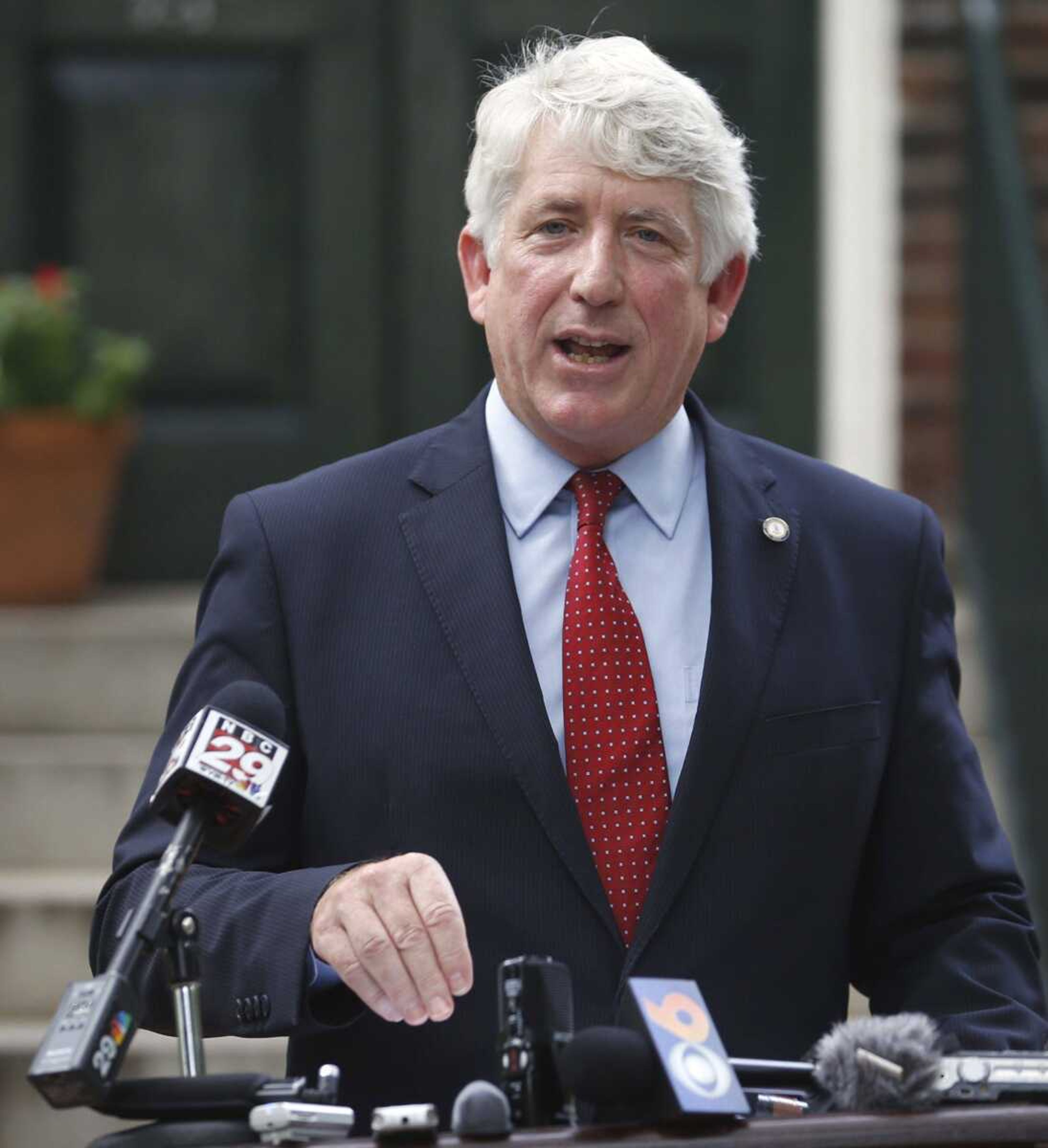RICHMOND, Va. -- The U.S. Department of Justice gave instructions on how to work around its strict rules for spending money seized in investigations to Virginia's top prosecutor, according to documents obtained by The Associated Press.
Law-enforcement agencies participating in investigations with federal counterparts can share proceeds of seized assets under Equitable Sharing programs run by the Justice and Treasury departments. Both agencies have clear rules that generally prohibit the use of such money for salaries and pay raises.
The Justice Department suggested a workaround, however, in a PowerPoint presentation obtained from the office of Virginia Attorney General Mark Herring after the AP raised questions about significant pay raises for several of Herring's employees at a time when state workers' pay was stagnant elsewhere.
Some staff attorneys' salaries rose as much as $15,000 in a year; one had a 30 percent increase.
The presentation advises instead of using the seized funds money to fund raises, agencies can use it to cover routine costs -- such as maintaining vehicle fleets -- and redirect money already budgeted for maintenance into salaries.
The PowerPoint states redirecting money in that manner is acceptable "so long as your overall budget does not decrease."
Virginia received more than $100 million in asset-forfeiture money under a joint state-federal settlement with Abbott Laboratories for an anti- seizure drug's off-label marketing.
Herring spokesman Michael Kelly said raises were made possible in part by using some of the funds to pay allowable expenses involving the agency's rent, vehicle maintenance and operational costs.
The Abbott settlement money was administered by the Treasury Department, but Kelly cited the PowerPoint as justification for using the funds to make raises possible. He said the PowerPoint was part of 2015 training for accountants in the state attorney general's office.
Created under a 1984 law, Equitable Sharing programs allow the federal government to share assets seized from wrongdoers with state and local law enforcement. The Justice Department said it has shared nearly $500 million in assets to those agencies in fiscal 2015; the Treasury Department, more than $163 million.
Justice spokeswoman Erica Lacy said the PowerPoint's advice is in line with the prohibition on using shared federal funds for salaries. She said the PowerPoint shows how money that's been budgeted can be used but doesn't encourage dependency on equitable-sharing funds for future salaries.
Critics, however, said the Justice Department is undercutting its own rules.
"What kind of a message does that send? That it's OK to cut corners and get around the rules that you wrote," said attorney Brad Cates, who ran the department's asset-forfeiture program in the 1980s.
The program is part of the broader asset forfeiture practice, which civil liberties groups and some in Congress criticized because it enables law enforcement to seize possessions such as cars and money without an indictment or evidence of a crime.
Justice Department guidelines say the ban on using asset forfeiture funds for salaries is designed to protect the program's integrity and ensure that agencies don't have -- or appear to have -- a financial incentive to seize funds or property.
Former U.S. Attorney General Eric Holder broadly revamped the asset forfeiture program in 2015, but critics said improper incentives persist.
Robert Johnson of the libertarian nonprofit Institute of Justice said the PowerPoint guidance "seems to violate the spirit -- if not the letter -- of the Justice Department's own equitable sharing guidelines."
And Republican U.S. Rep. Jim Sensenbrenner of Wisconsin said the federal rules barring use of asset forfeiture funds are "window dressing" and the PowerPoint's advice highlights the need for reform. He expects the new GOP Congress to be sympathetic to calls for reform, adding, "We'll be revisiting this issue big time."
Sensenbrenner sent a letter to Attorney General Loretta Lynch seeking an explanation about the presentation AP shared with him. Lynch's office didn't respond to him.
Herring spokesman Kelly said the raises are needed to attract and keep top-notch attorneys. Herring raised the pay floor for 64 attorneys, with a median raise of about $7,000, Kelly said.
The Treasury Department praised Herring's office in a letter last year for how it has handled the Abbott settlement money.
Elsewhere last year, Virginia scrapped planned across-the-board raises for state employees amid budget problems. The head of the Virginia State Police recently complained that low pay was creating morale problems and a shrinking workforce.
Republican state Del. Rob Bell said Herring's move was unfair to other state workers.
"We have unfilled state trooper positions because of salary issues," Bell said, and salaries in Herring's office "obviously should be set by the same rules that are in use for other state employees."
Connect with the Southeast Missourian Newsroom:
For corrections to this story or other insights for the editor, click here. To submit a letter to the editor, click here. To learn about the Southeast Missourian’s AI Policy, click here.







